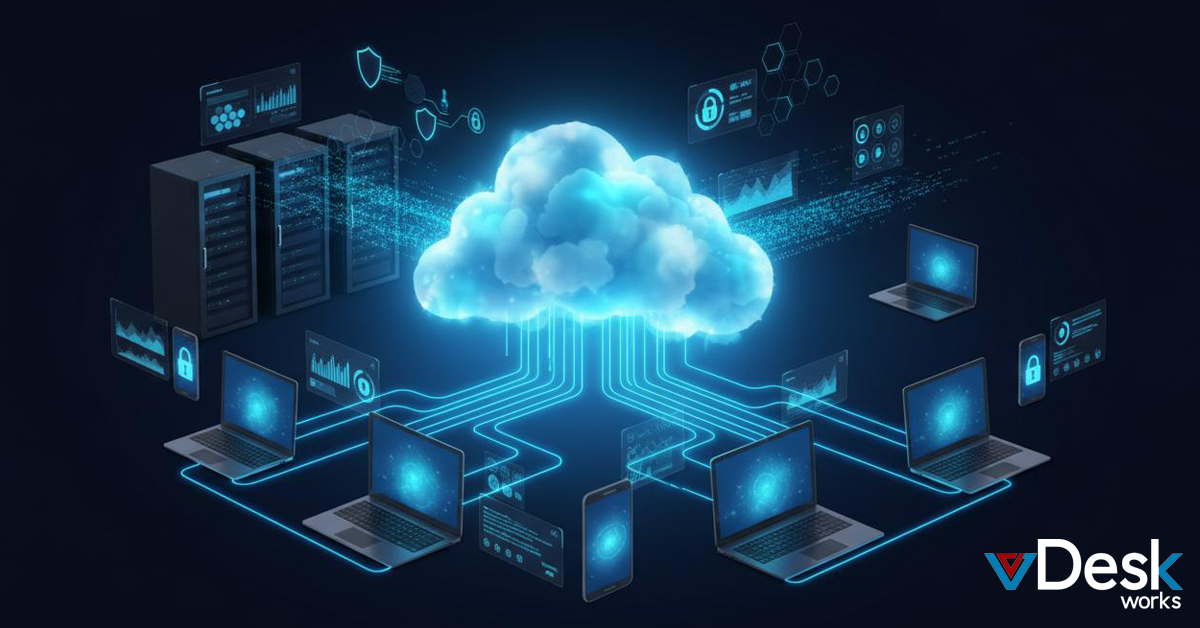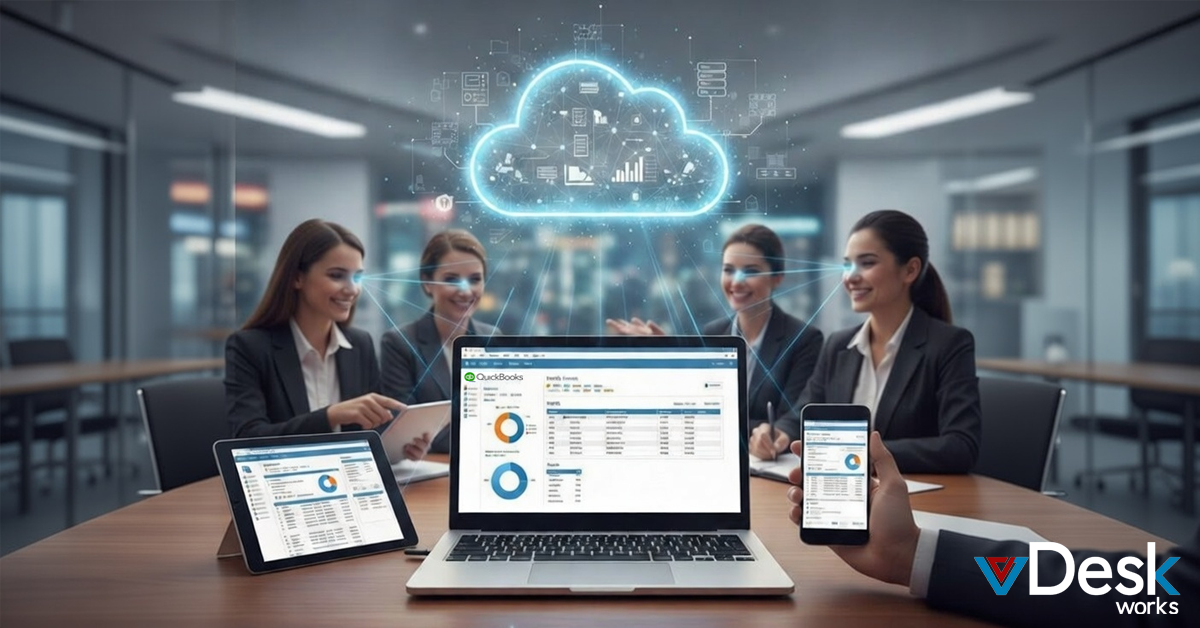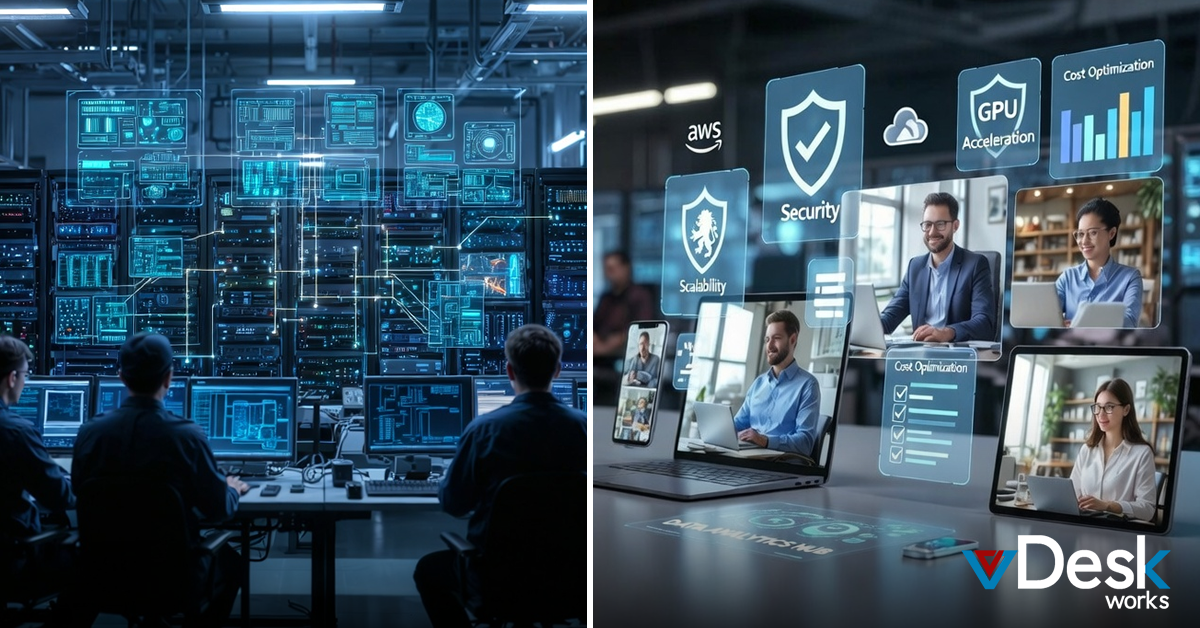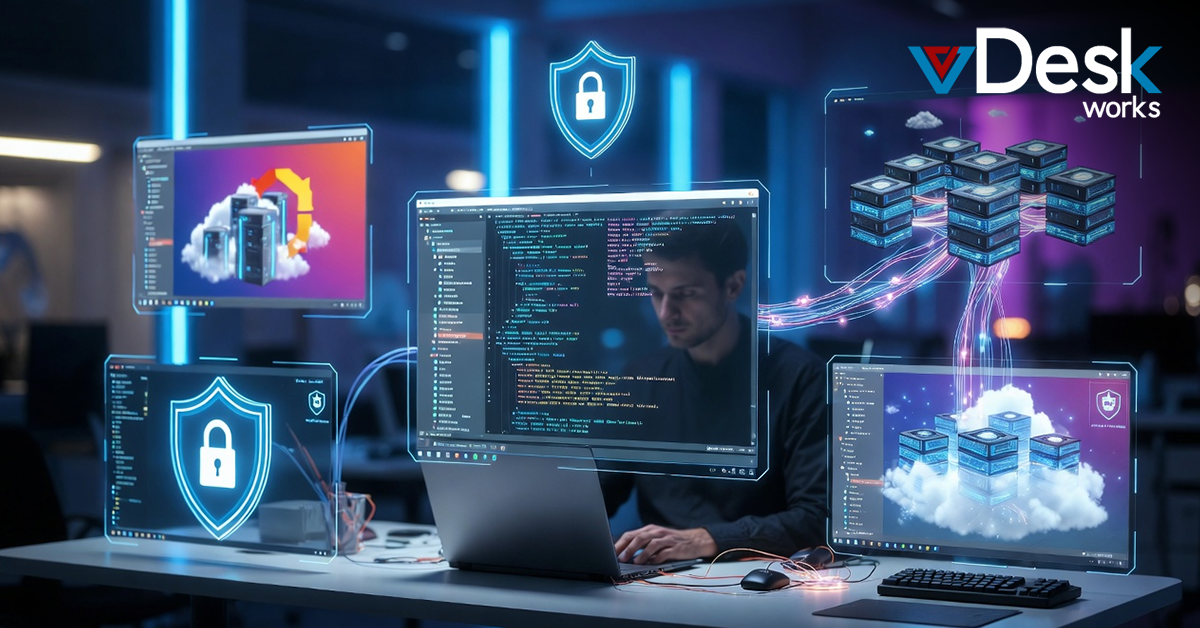The rise of remote work has undeniably transformed the business landscape. However, ensuring secure and efficient access to company resources for a scattered workforce presents a challenge. Traditional Virtual Private Networks (VPNs) have long been the go-to solution, but their limitations are becoming increasingly apparent. This blog delves into the reasons why Virtual Desktops (VDI) are emerging as a safer and more robust alternative for remote work.
Why VPNs Are No Longer Enough
While VPNs offer a basic level of security by encrypting data traffic, they come with inherent vulnerabilities. Firstly, VPNs rely on securing the endpoint device itself. If an employee's laptop is compromised by malware, hackers can potentially gain access to the entire network once connected through the VPN. Additionally, VPNs can be resource-intensive, especially for bandwidth-heavy applications. This can lead to sluggish performance and hinder employee productivity. Furthermore, managing and scaling VPN access can be cumbersome for IT teams, especially as the number of remote workers grows.
The Advantages of Virtual Desktops
VDI technology offers a more comprehensive security solution for remote work. Here's why it's gaining traction:
Enhanced Security
VDI solutions create a virtual workspace hosted on a central server. This means employees access their desktops and applications remotely, entirely within the controlled server environment. Even if the local device is compromised, corporate data remains secure within the virtual desktop.
Centralized Management
IT administrators have complete control over the virtual desktops, allowing for centralized application deployment, updates, and security patching. This streamlines IT processes and ensures consistency across all remote workstations.
Device Agnosticism
Unlike VPNs, VDI solutions are not tied to specific devices or operating systems. Employees can access their virtual desktops from any device with a reliable internet connection, offering greater flexibility and eliminating the need for company-issued hardware.
Improved Performance
VDI leverages server-side processing power, minimizing the strain on employees' local devices. This ensures smooth operation even for resource-demanding applications, fostering a more productive work experience.
Addressing Data Security Concerns
One of the biggest concerns regarding VDI is data security in the cloud environment. However, reputable VDI providers prioritize robust security measures. These include multi-factor authentication, data encryption at rest and in transit, and stringent access controls. Additionally, VDI eliminates the risk of data breaches on personal devices, as all work happens within a secure virtual environment.
Beyond Security: The Benefits of a Streamlined Work Experience
VDI offers several advantages that extend beyond enhanced security. Standardized virtual desktops ensure consistency for employees, regardless of their location. This simplifies troubleshooting and reduces the need for IT support for individual device issues. VDI also facilitates collaboration, as team members can access and work on shared documents within the virtual environment seamlessly.
Furthermore, VDI promotes business continuity by ensuring critical applications and data are readily available even in case of device failure or natural disasters. This translates to increased uptime and minimizes disruptions to workflows.
The Future of Work is Remote-First: Why VDI is the Answer
The COVID-19 pandemic has accelerated the shift towards remote work models. Businesses have realized the benefits of a geographically dispersed workforce, including access to a wider talent pool, reduced overhead costs, and improved employee well-being. However, with this shift comes the responsibility of ensuring a secure and productive work environment for remote employees.
Traditional VPNs simply aren't equipped to handle the demands of a remote-first work model. The limitations we discussed earlier - endpoint security vulnerabilities, performance bottlenecks, and cumbersome management - become even more critical as the number of remote workers increases. VDI, on the other hand, offers a future-proof solution for remote work success.
VDI's inherent security features, centralized management capabilities, and device agnosticism make it ideal for scaling alongside a growing remote workforce. IT teams can efficiently provision and manage virtual desktops, ensuring consistency and security across all remote locations. Additionally, VDI empowers employees to work productively from anywhere, fostering a culture of flexibility and boosting overall employee satisfaction.
By embracing VDI, businesses can unlock the full potential of a remote-first work model. They can attract and retain top talent regardless of location, reduce operational costs, and empower employees to work efficiently and securely. VDI is a strategic investment that paves the way for a more agile, secure, and future-proof work environment.
VDI vs Traditional Desktops: The Cost Equation
One of the hesitations some businesses have regarding VDI is the perceived cost compared to traditional desktop setups. While VDI does require an initial investment in server infrastructure and software licensing, it offers significant cost savings in the long run.
Firstly, VDI eliminates the need to purchase and maintain individual desktops for every employee. This translates to reduced hardware costs and a lower Total Cost of Ownership (TCO). Additionally, VDI streamlines IT processes by centralizing application deployment, updates, and security patching. This reduces IT workload and frees up resources for more strategic initiatives.
Furthermore, VDI minimizes the risk of data breaches on personal devices, which is often a significant concern for businesses with sensitive data. By containing all work within the secure virtual environment, VDI reduces the potential for data loss and associated financial repercussions.
Finally, VDI fosters increased employee productivity due to its improved performance and user experience. This translates to greater output and a positive return on investment for the business. While VDI requires a shift in mindset and initial setup, the long-term cost benefits and security advantages make it a compelling choice for businesses looking to optimize their remote work strategy.
vDesk.works: Your Secure and Scalable VDI Solution
At vDesk.works, we understand the importance of secure and efficient remote work solutions. Our state-of-the-art VDI platform provides a robust and user-friendly virtual desktop experience for businesses of all sizes.
We leverage industry-leading security protocols and data encryption to ensure your company information remains protected. Our platform is highly scalable, allowing you to easily add or remove virtual desktops as your workforce fluctuates. Additionally, our intuitive interface empowers employees to access their virtual workspaces seamlessly from any device, fostering a productive and secure remote work environment.
Contact vDesk.works today and discover how our VDI solution can empower your remote workforce and safeguard your business data.


 Emma Carson
Emma Carson
















